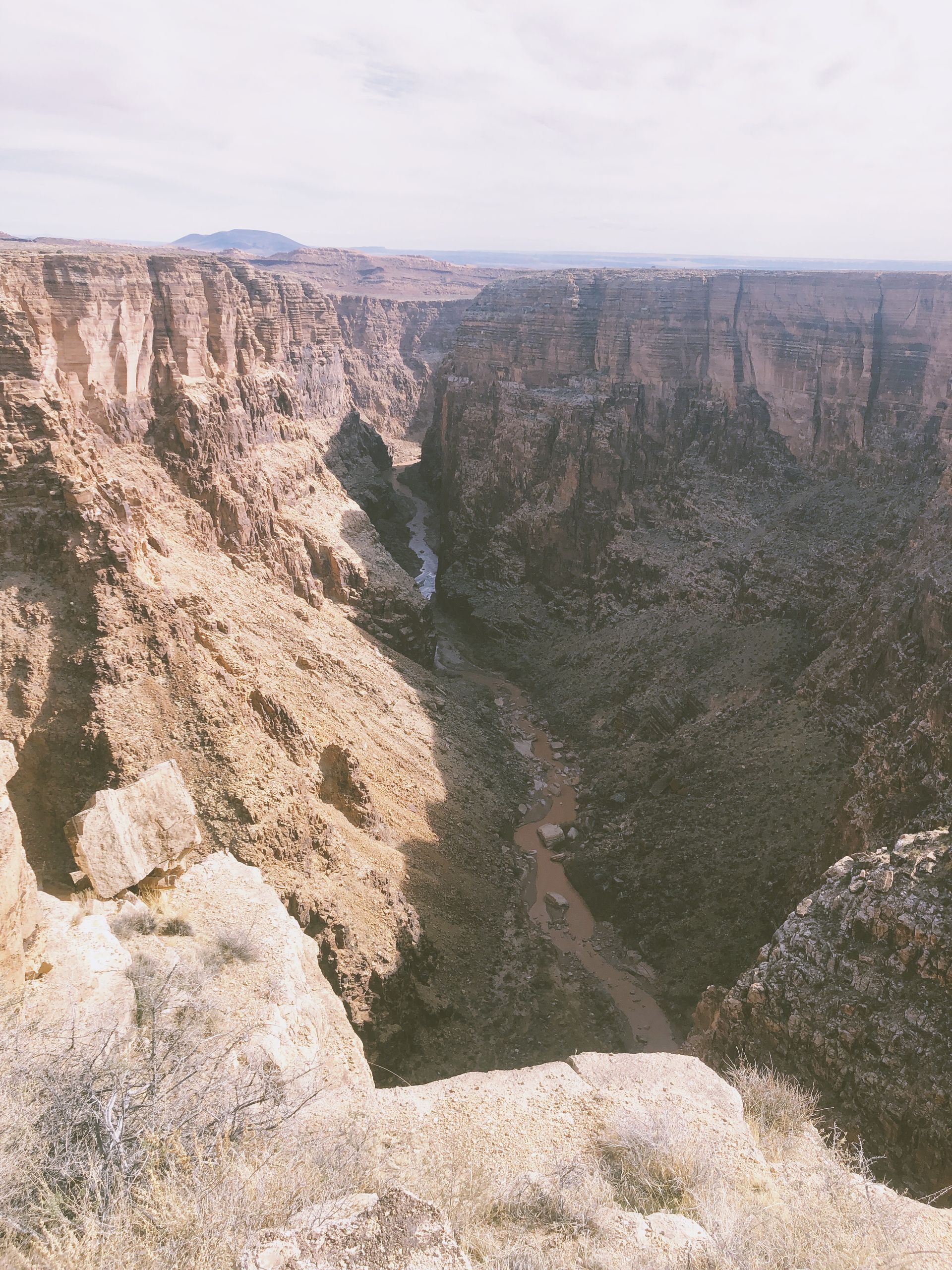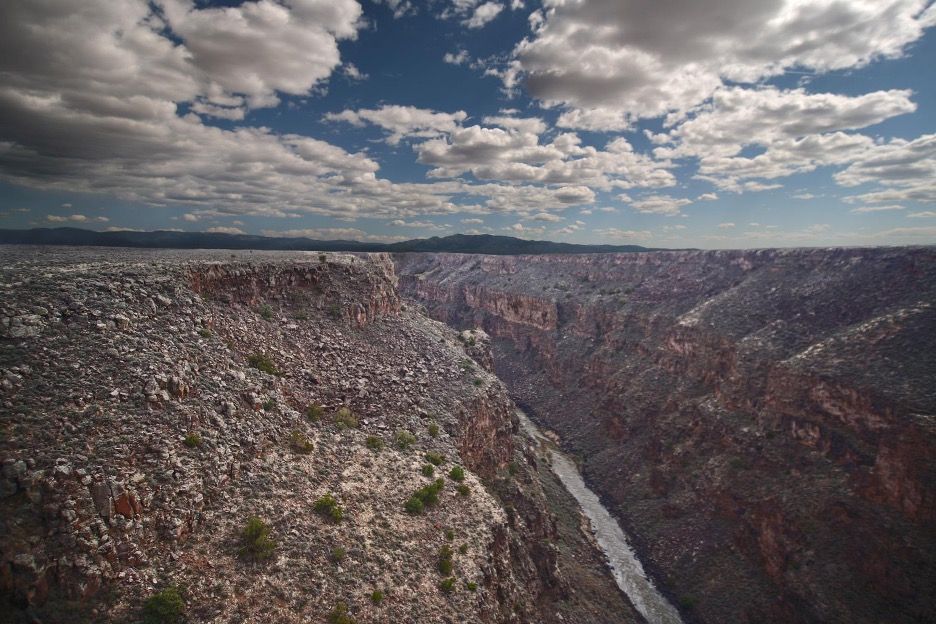Why Tribal Nations Can’t Be Left Out of the Next Chapter in Colorado River Management

The Bureau of Reclamation 2007 Interim Operating Guidelines for the Colorado River are set to expire in 2026 and at the moment the seven Basin States Representatives are working on the Post-2026 Operating Guidelines. The uncertainty for the scarce resource of water is at the forefront of every lawmaker’s mind in the Western United States. Tribal Nations were left out of the original 1922 Colorado River Compact and now, as the expiration date approaches and negotiations become more urgent, Colorado River Tribal Water Rights Settlements are hoping to be approved by the 119th Congress as the Post-2026 Guidelines are being negotiated.
Currently, the Navajo Nation is seeking ratification of water rights through S.953 and H.R.2025, the Northeastern Arizona Indian Water Rights Settlement Act, after it did not have the opportunity for NAIWRSA to be put to a vote before the 118th Congress in 2024. In January of 2025, the Navajo Nation was celebrating the decree for their Utah Upper Basin water rights following the passage of the Navajo Utah Water Rights Settlement and is now moving towards implementation. But now, the seven Basin States are worried about the Post-2026 Operating Guidelines. This time around, the Colorado River looks a little different than it did 103 years ago. Based on available records at the time, the Colorado River Compact assumed that there would be 16.4 Million Acre Feet flowing on average each year, but the reality has been much lower than that. Since 1922, there have been a number of additional agreements and court decisions that address the Colorado River that have been coined as the “Law of the River” and Post-2026 is the next chapter in the Colorado River’s management history.
NAIWRSA is set to settle water rights for the Navajo Nation, Hopi Tribe, and San Juan Southern Paiute on the Colorado River, Little Colorado River, and relevant groundwater. Many members of these tribes do not have access to running water in their homes. Navajo President Nygren stated in a testimony before the House Natural Resources Committee, “[m]ore than 30 percent of Navajo households do not have running water and rely on hauling water.” The passing of this settlement will secure clean and reliable sources of water for the tribal communities.
In 2024, many Basin State submitted comment letters to the congressional hearings supporting NAIWRSA but also stated concerns that were holding them back from supporting a consensus for the passage. These tribal nations need this water and settlement to sustain their communities into the future, so it is not an option to push off settlement any longer.
The issue is further complicated by changes in funding from the Trump Administration. It is yet to be seen exactly how this will impact the Colorado River Post-2026 negotiations, but there are several funding streams aimed at helping to conserve water and limit the impacts of drought for the future that have been defunded. This has the potential to harm everyone that relies on the Colorado River for their water, including tribal nations, members of the seven Basin States, the United States as a whole, and it may even impact international implications as a water source for Mexico. Tribes are continuing to keep the pressure on, but the seven Basin States need to split their attention between NAIWRSA and Post-2026 for the good of everyone in the United States.
SOURCES
- U.S. Bureau of Reclamation, Colorado River Basin Post-2026 Planning, https://www.usbr.gov/ColoradoRiverBasin/post2026/index.html (last visited March 17, 2025).
- Management of the Colorado River: Water Allocations, Drought, and the Federal Role, Congressional Research Service, The Congressional Research Service and the American Legislative Process, R45546 (2018), https://crsreports.congress.gov/product/pdf/R/R45546.
- Nygren, Dr. Buu, Testimony before the House Committee on Natural Resources, Subcommittee on Water, Wildlife, and Fisheries, 118th Cong. (July 23, 2024), available at https://naturalresources.house.gov/uploadedfiles/testimony_nygren72324.pdf.
- Navajo Nation and state of Utah reach another water rights milestone, Utah Dep’t of Nat. Res. (Feb. 18, 2025), https://naturalresources.utah.gov/dnr-newsfeed/navajo-nation-and-state-of-utah-reach-another-water-rights-milestone/#:~:text=SALT%20LAKE%20CITY%20(Feb.,the%20Navajo%20Nation%20in%20Utah.
- Trump Freezes $4 Billion to Keep the Colorado River Flowing, Audacy (Feb. 25, 2025), https://www.audacy.com/wwjnewsradio/news/national/trump-freezes-usd4-billion-to-keep-the-colorado-river-flowing.
- Ali Longwell, Lawmakers get update on post-2026 Colorado River basin negotiations, Steamboat Pilot & Today, (Feb. 20, 2025) https://www.steamboatpilot.com/news/lawmakers-get-update-on-post-2026-colorado-river-basin-negotiations/.



